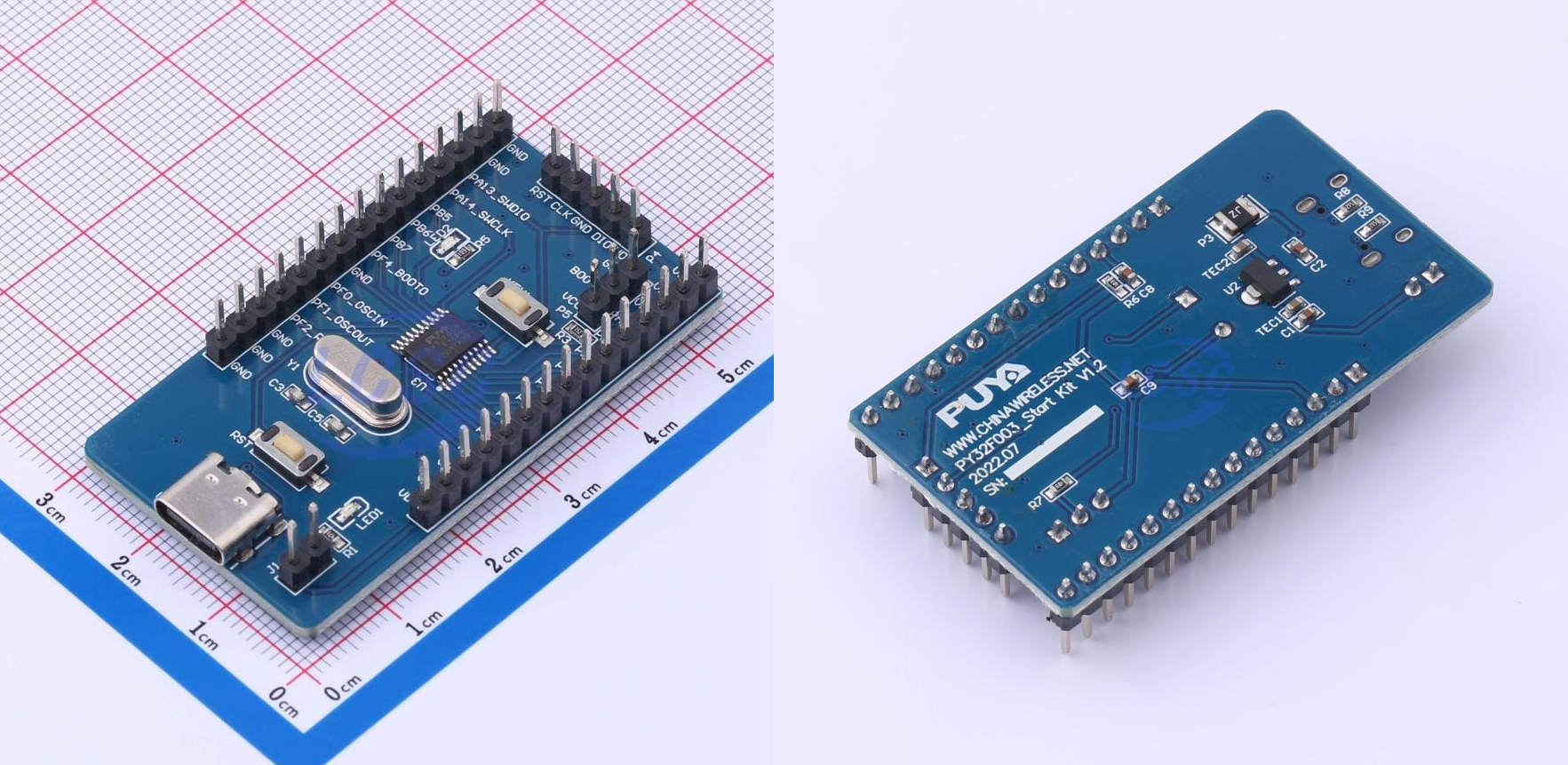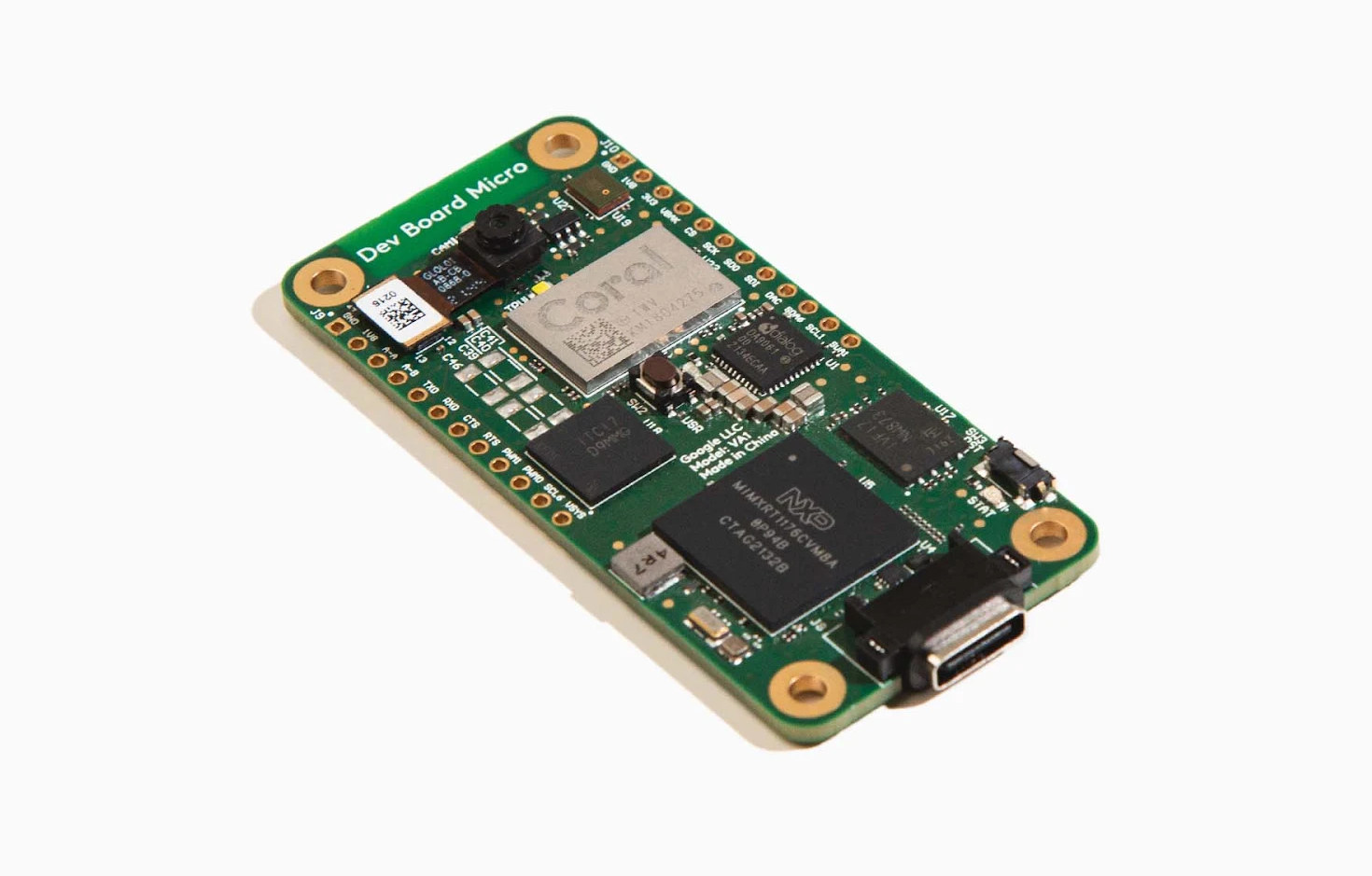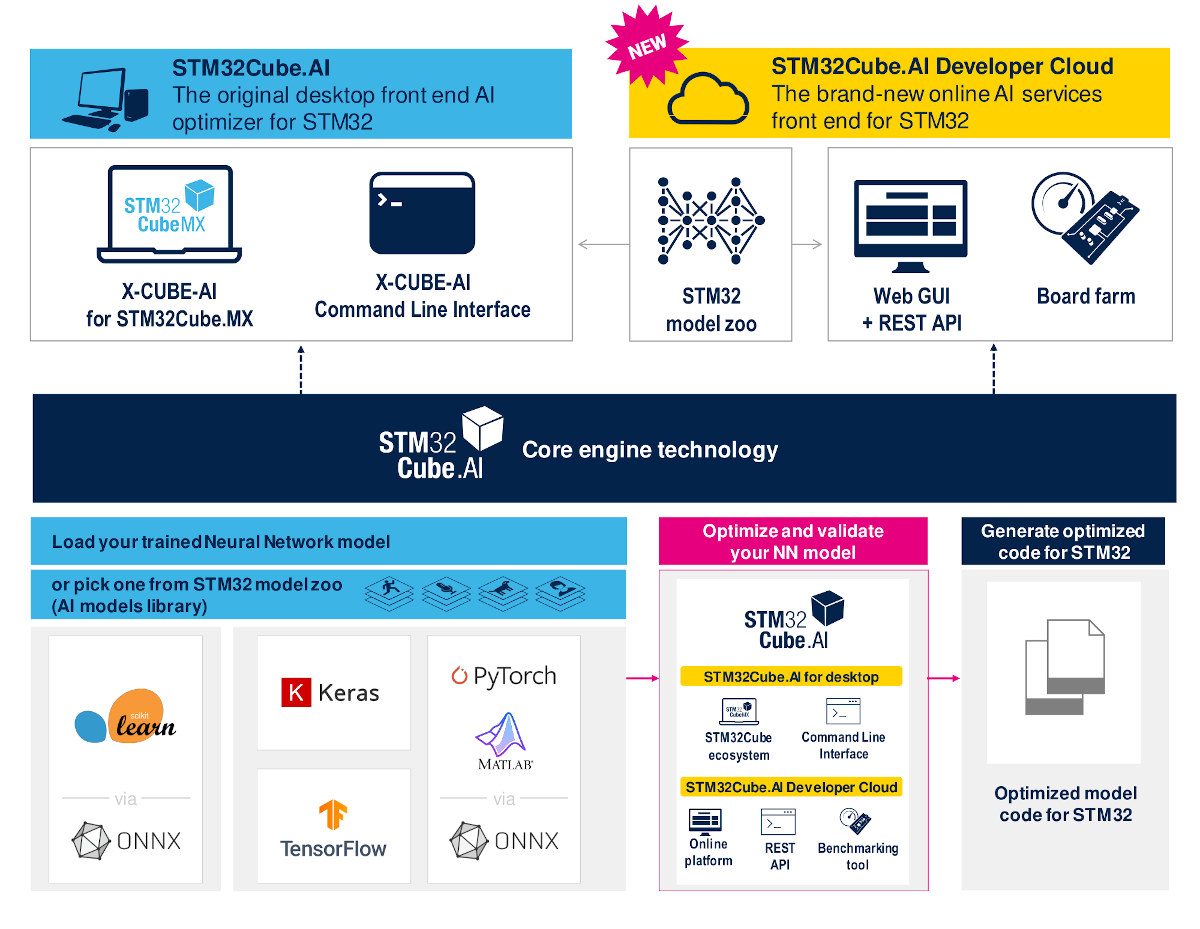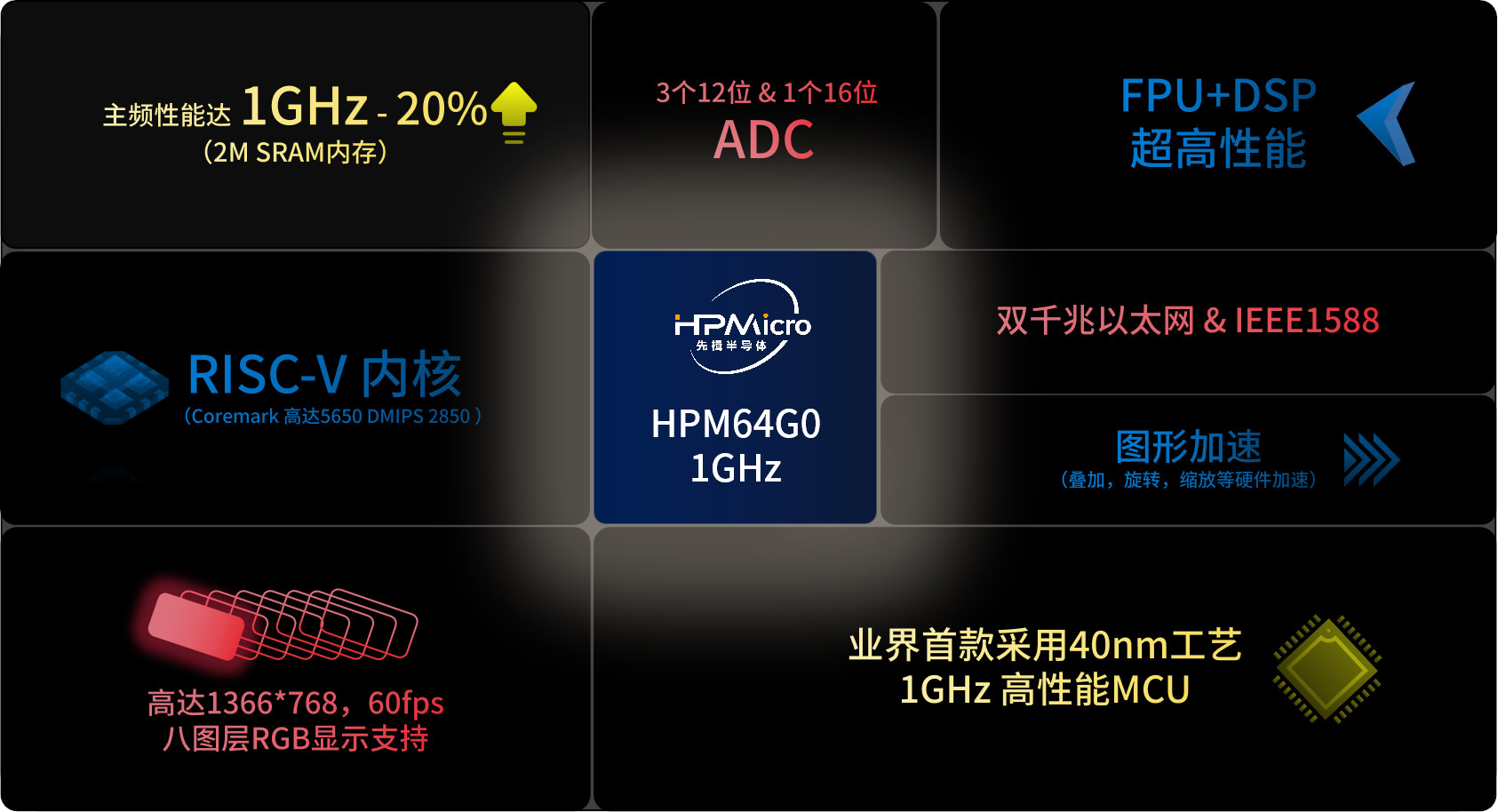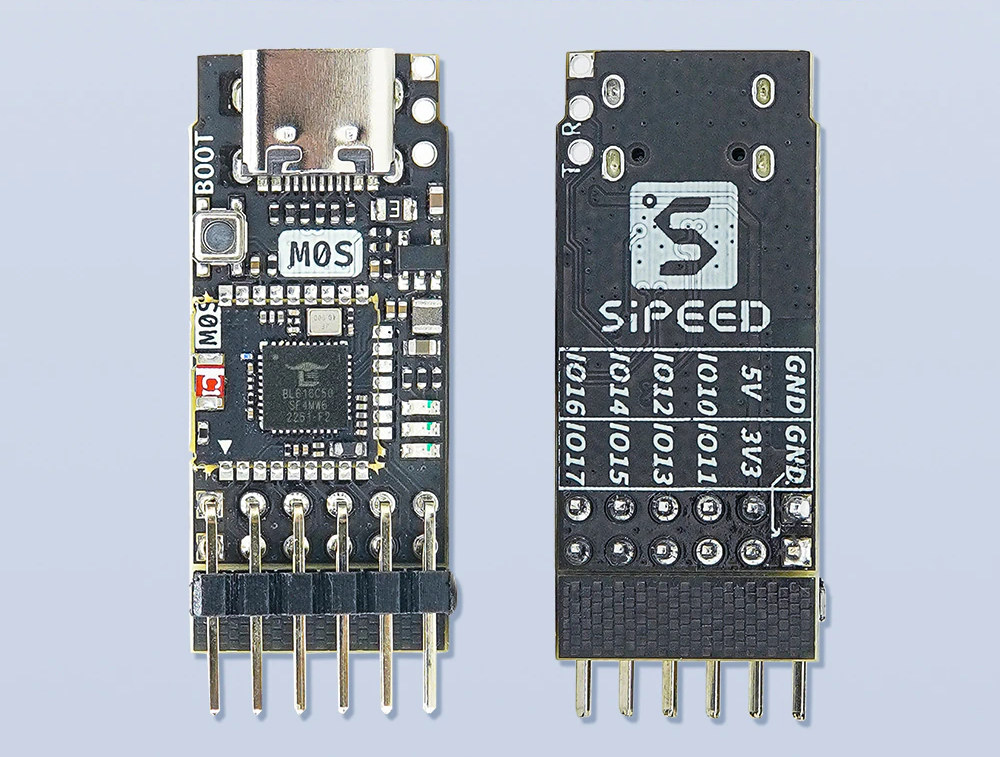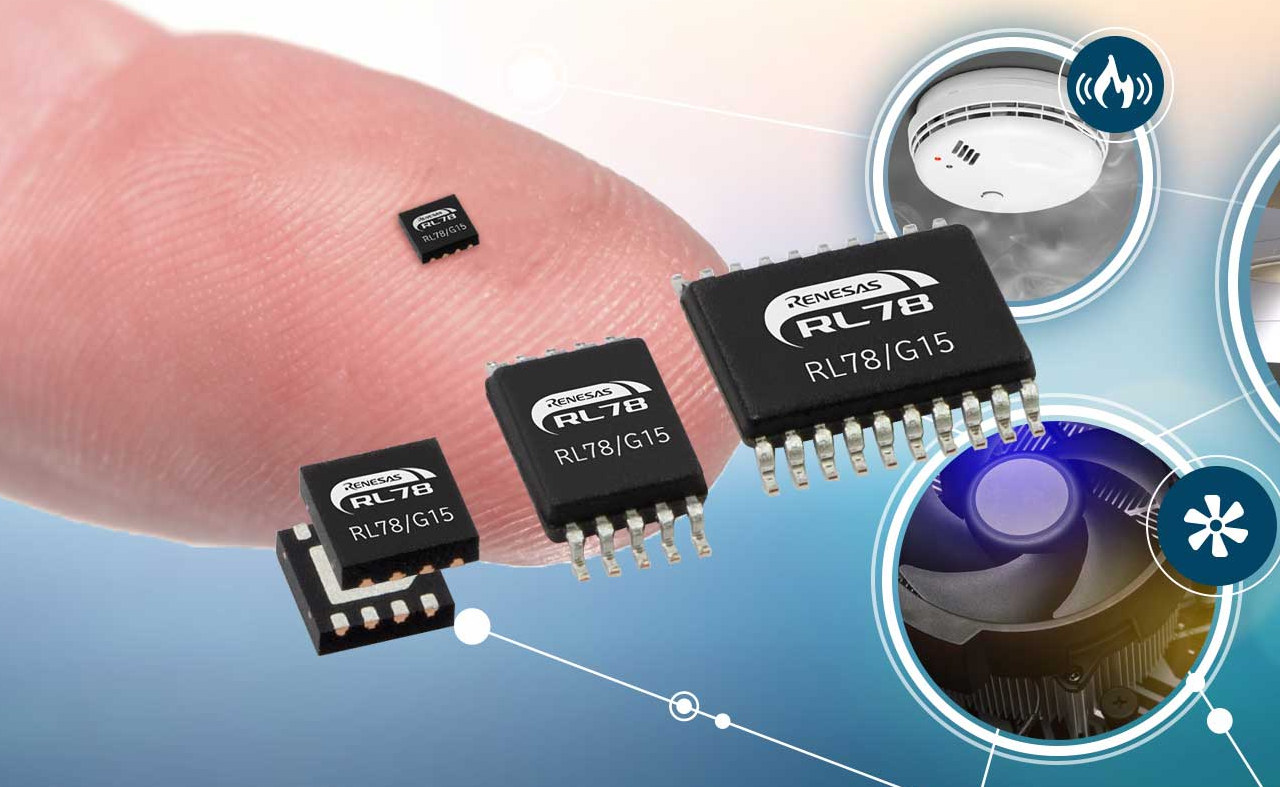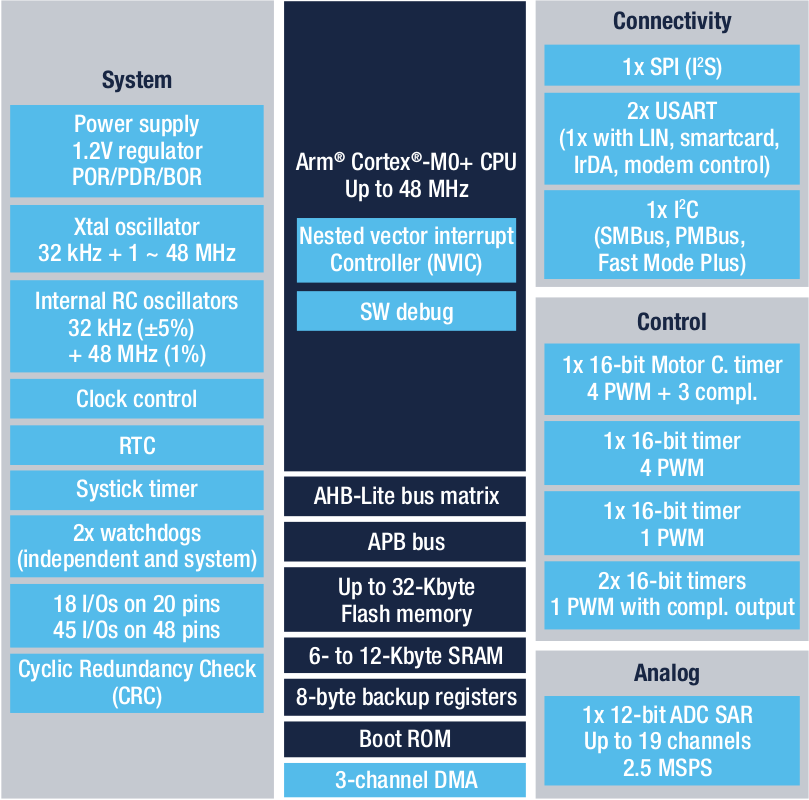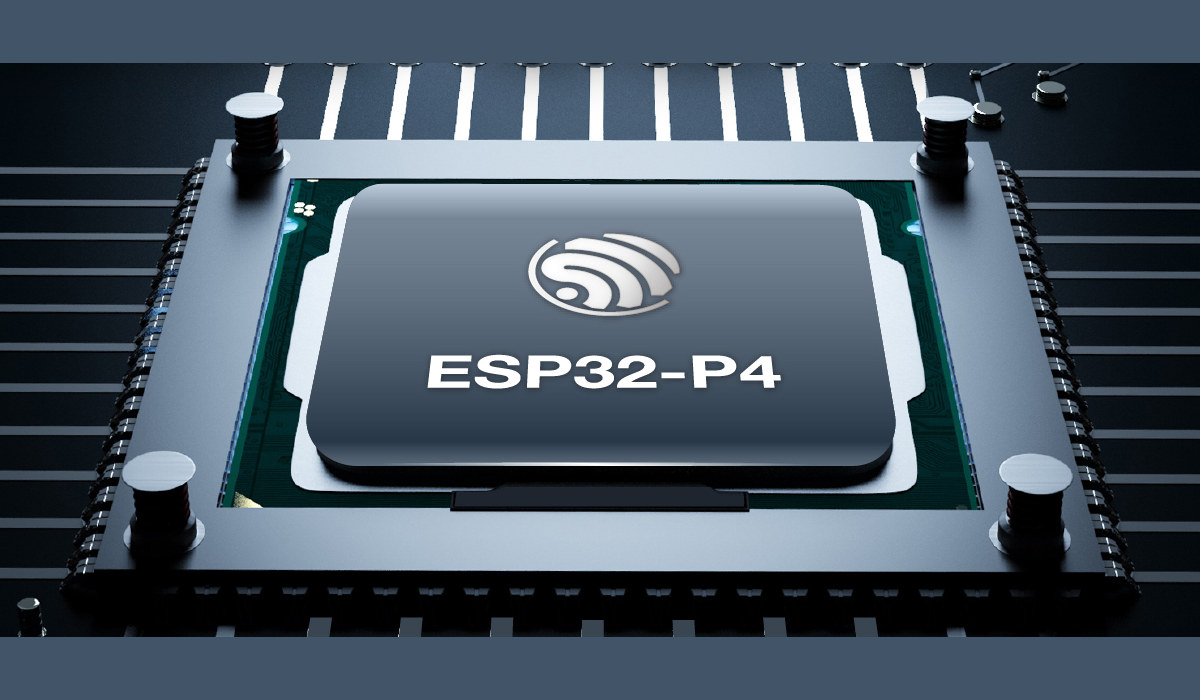Puya Semiconductor (Shanghai) PY32 Arm Cortex-M0+ microcontroller family may be the world’s cheapest 32-bit Arm MCUs with one of the parts – PY32F002AL15S6TU – selling for under 8 cents per unit in 5K+ orders with 3KB SRAM, 20KB flash in an 8-pin SOP-8 package. Back in 2016, when I searched for the world’s cheapest MCU, I found Holtek HT48R002 8-bit microcontroller, and a few years later (2019), Padauk PMS150C “3 Cents” MCU came to my attention. However, both are 8-bit microcontrollers that come with OTG (One-Time Programming) ROM, meaning they can’t be easily used for development or updated. The Puya PY32 microcontrollers are in the same price range but offer a 32-bit Arm Cortex-M0+ core clocked at 24 to 48MHz, 16KB to 64KB flash storage, and 2KB to 8KB SRAM. There are three PY32 sub-families, but let’s check out the PY32F002 family in detail since those are the cheapest parts. […]
Coral Dev Board Micro combines NXP i.MX RT1176 MCU with Edge TPU in Pi Zero form factor
Coral Dev Board Micro is the latest iteration of Google’s Edge AI devkit with an NXP i.MX RT1176 Cortex-M7/M4 crossover processor/microcontroller coupled with the company’s 4 TOPS Edge TPU, a camera, and a microphone in a board that’s about the size of a Raspberry Pi Zero SBC. The new board follows the original NXP i.MX 8M-based Coral Dev board that was introduced in 2019, and Coral Dev Board mini based on MediaTek MT8167S processor launched in 2020, and keeps with the trend of providing more compact solutions with lower-end host processors for edge AI. Coral Dev Board Micro specifications: MCU – NXP i.MX RT1176 processor with an Arm Cortex-M7 core @ up to 1 GHz, Cortex-M4 core up to 400 MHz, 2MB internal SRAM, 2D graphics accelerators; System Memory – 512 Mbit (64 MB) RAM Storage – 1 Gbit (128 MB) flash memory ML accelerator – Coral Edge TPU coprocessor […]
STM32Cube.AI Developer Cloud generates AI workloads for STM32 microcontrollers
STMicroelectronics has just announced the STM32Cube.AI Developer Cloud opening access to a suite of online AI development tools for the STM32 microcontrollers (MCUs) allowing developers to generate, optimize, and benchmark AI working on the company’s 32-bit Arm microcontrollers. The company sus the STM32Cube.AI Developer Cloud is based on the existing STM32Cube.AI ecosystem of desktop tools with the added benefit of being able to remotely benchmark models on STM32 hardware through the cloud in order to save on workload and cost. Some of the highlights of the online tools include: An online interface to generate optimized C-code for STM32 microcontrollers without requiring prior software installation. Access to the STM32 model zoo, a repository of trainable deep-learning models and demos. It currently features human motion sensing for activity recognition and tracking, computer vision for image classification or object detection, audio event detection for audio classification, and more. You’ll find those on GitHub […]
HPMicro HPM64G0 – A 1 GHz RISC-V microcontroller
Yesterday, I ended up on the HPMicro website showing the illustration above about a 1 GHz MCU called HPM64G0. It looked interesting enough so I clicked on the link to a page with some documentation for the company’s HPM6700/6400 microcontrollers. But in typical Chinese fashion, I was asked for a mobile phone number to download the documents. No luck this time since a Chinese mobile phone number is required. If anybody can set up a mirror on Mega or other websites easily accessible outside of China that would be appreciated. But eventually, I found an article in Chinese on EETrend where we can learn more about the HPM64G0 which happens to be a 1GHz microcontroller based on the RISC-V architecture. We already had one of those for Arm with the NXP i.MX RT1170, but I had yet to see any RISC-V microcontrollers clocked at such a high frequency. HPMicro HPM64G0 […]
$4 Sipeed M0S Dock IoT development board features BL616 WiFi 6, BLE 5.2, and Zigbee RISC-V microcontroller
As expected, Sipeed has now launched the Sipeed M0S IoT module based on Bouffalo Lab BL616 RISC-V microcontroller with 2.4 GHz WiFi 6, BLE 5.2, and Zigbee connectivity along with the “Sipeed M0S Dock” development board. The M0S is a tiny module (11×10 mm) with a 320 MHz wireless MCU, a ceramic antenna, and castellated holes for I/Os, and the Sipeed M0S Dock places the module on an easy-to-use board with a USB Type-C port, a BOOT button, and a 12-pin 2.54mm pitch header. Sipeed M0S module specifications: MCU – Bouffalo Lab BL616 32-bit RISC-V (RV32IMAFCP) microcontroller @ up to 320 MHz (384 MHz overclocked) with 480KB SRAM, 4MB flash, 2.4 GHz WiFi 6, Bluetooth 5.2 dual mode, and 802.15.4 radio (Zigbee) Antenna – Ceramic antenna (red component on module) I/Os – 25 castellated holes with RGB LCD DVP camera USB 2.0 OTG up to 480 Mbps I2C, UART, SPI […]
Renesas RL78/G15 8-bit MCU is offered in a 3x3mm package
Renesas Electronics RL78/G15 is an entry-level 8-bit microcontroller with 1 KB of SRAM, 4 or 8KB of code flash memory, and offered in package sizes ranging from 8 to 20 pins, down to an 8-pin device measuring just 3×3 mm. STMicro has just unveiled the STM32C0 32-bit microcontroller claiming “your next 8-bit MCU is a 32-bit” with packages from 8- to 48-pins and packages as small as 1.70 x 1.42 mm and 3x3mm, and a price similar to other 8-bit industrial microcontrollers. To that, I say “not so fast STMicro!”, as Renesas has just launched the 16 MHz RL78/G15 8-bit microcontroller family with many of the same features and target use cases as the STMC32C011 sub-family. Renesas RL78/G15 key features and specifications: CPU core – Renesas RL78 8-bit core @ up to 16 MHz Memory – 1NS SRAM, Storage – 4 to 8KB program flash, 1KB data flash Peripheral I/F […]
Low-cost STM32C0 32-bit microcontroller aims to displace 8-bit MCUs
8-bit MCUs are still found in many designs, but with the new low-cost 48MHz STM32C0 32-bit Arm Cortex-M0+ microcontroller, STMicroelectronics aims to displace 8-bit microcontrollers thanks to “a limited impact on the cost structure” and the improved support provided by the STM32 ecosystem. The cheapest ever STM32 microcontroller offers up to 32 KB flash, 6 or 12 KB RAM, and I/O interfaces such as UART, I2C, SPI, 12-bit ADC, and so on. The STM32C0 MCUs are available in 8- to 48-pin packages such as WLCSP12, UFQFPN, and the ridiculously tiny 1.70 x 1.42 mm WLCSP12 package. STMicro STM32C0 key features and specifications: MCU Core -Arm 32-bit Cortex-M0+ CPU @ up to 48 MHz Memory – 6KB (STM32C011x4/x6) or 12KB (STM32C031x4/x6) SRAM with HW parity check Storage – 32KB flash with protection Peripheral interfaces Up to 45x fast I/Os some of which are 5V tolerant; Note: up to 18x fast I/Os […]
Espressif ESP32-P4 – A 400 MHz general-purpose dual-core RISC-V microcontroller
Espressif ESP32-P4 is a general-purpose dual-core RISC-V microcontroller clocked at up to 400 MHz with AI instructions extension, numerous I/Os, and security features. It also happens to be the first microcontroller from Espressif Systems without wireless connectivity, and as such, it should probably be seen as an alternative to STM32F7/H7 or NXP i.RT Arm Cortex-M7 microcontrollers/crossover processors, and likely offered at a significantly lower cost. It should also offer lower power consumption than other ESP32 chips thanks in part to a third RISC-V core clocked at 40 MHz that can keep the system running while the other two high-performance cores are down. ESP32-P4 key features and specifications: MCU subsystems Dual-core RISC-V HP (High-performance) CPU @ up to 400 MHz with AI instructions extension and single-precision FPU, 768KB of on-chip SRAM Single-RISC-V LP (Low-power) MCU core @ up to 40 MHz with 8KB of zero-wait TCM RAM Memory & Storage I/F […]


